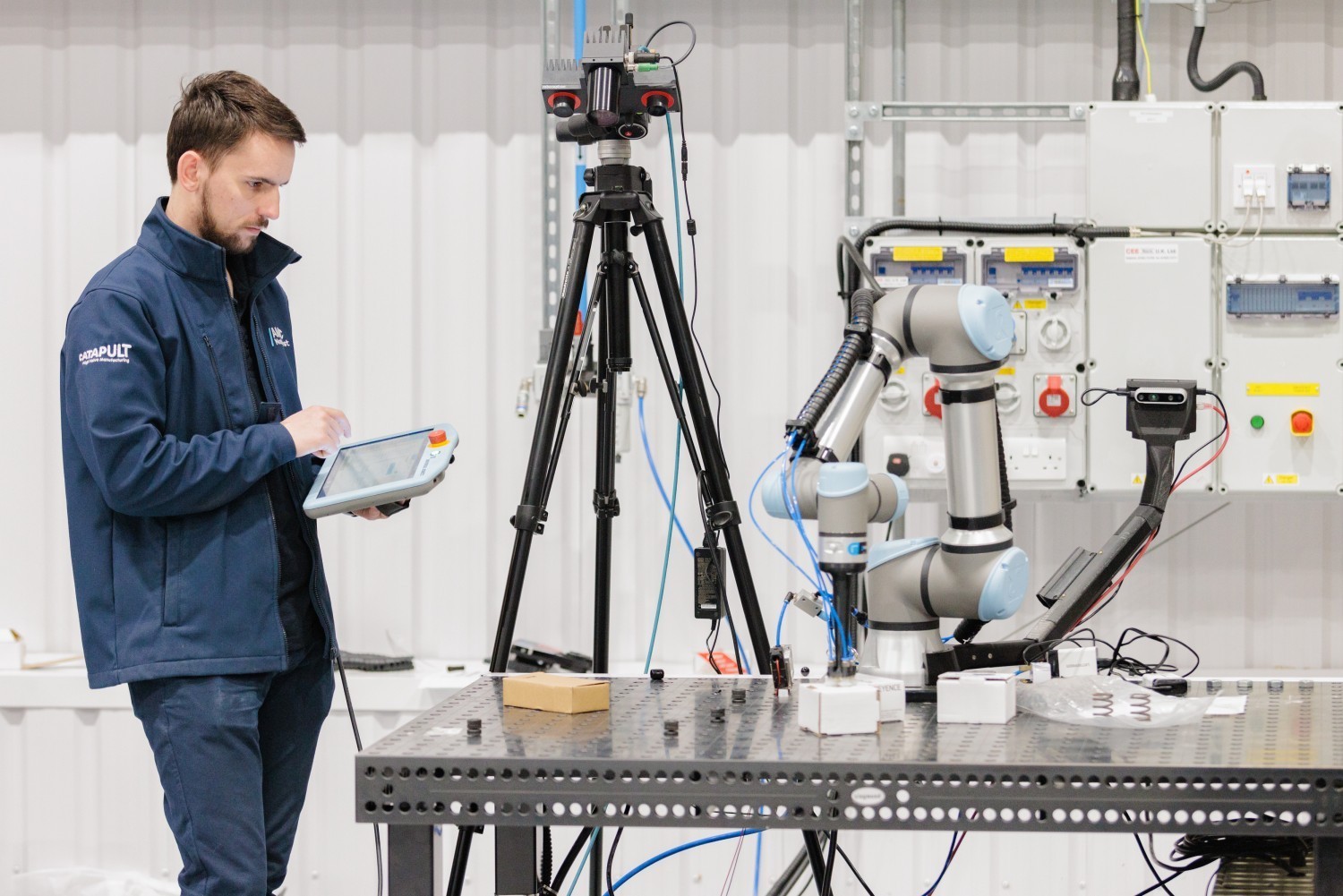The University of Sheffield Advanced Manufacturing Research Centre (AMRC) North West has celebrated the close-out of the 5G Factory of the Future programme.
As the UK’s first, fully operational 5G Standalone (5G SA) testbed, it brings UK manufacturers another step closer to creating a more adaptable manufacturing ecosystem.
The technology has been designed for a world in which rising adoption of digital technology for day-to-day activities has resulted in data volumes scaling up exponentially.
5G will allow flexible reconfiguration and rapid stand-up of new operational hardware, as well as enabling existing machines or facilities to be retrofitted with digital technologies, increasing our manufacturing efficiency and flexibility.
Delivery of the project, launched in December 2020, was managed by a consortium of industrial and academic leaders from the UK manufacturing and telecommunications sectors. Included was the AMRC as project lead, alongside BAE Systems, Digital Catapult, Fuuse, IBM, aql and MTT.
The project, which ran at a cost of more than £10m, was part-funded by the Department for Science, Innovation and Technology (DSIT) as part of its £200m investment in its 5G Testbed and Trials programme. It also received match funding from industry.
Dr Aparajithan Sivanathan, project lead for the 5G Factory of the Future programme and head of digital technology at AMRC North West, said: "The 5G FoF project has successfully delivered the largest manufacturing testbed in the UK, with 5G standalone capability, proven working 5G use cases and developed native 5G devices.
“We have also created a business model that will sustain the testbed beyond the end of the project. 5G is going to be the future and we’re now thinking about the next phase.”

A total of 75 people, including businesses, manufacturers and academics, attended a special event to hear the project outcomes and discover first-hand how 5G is making a difference through live, cutting-edge demos.
Keith Bullock, 5G programme director for digital infrastructure at the Department for Department for Digital, Culture, Media and Sport, said: “5G FoF was one of 38 projects in the 5G Testbed and Trials programme and I think we now understand quite a lot around how things do and don’t work.
“It’s been brilliant to have a British manufacturing organisation like BAE Systems, coupled with some top vendors, some innovative SMEs and a whole package brought together by AMRC North West, that has been built for innovation and sharing information, made this project hugely attracted and this team has shown incredible resourcefulness up to this point.
“We feel hugely positive about the future, and we have learnt how little we know – and that the way to do this from a government point of view is to not over-define, but to leave it open and allow companies and experts like you, to tell us what we should be doing.”
James Petherbridge at IBM Consulting added: “The 5G Factory-of-the-Future programme has demonstrated the power of putting IBM’s AI into the hands of manufacturing experts, enabling them to build models that automate data-driven algorithms delivering improved shopfloor performance. The combination of 5G connectivity together with the power of hybrid cloud have demonstrated they provide the versatility and flexibility to scale operations securely.
"This project has also demonstrated the value of ecosystems collaborating to bring diverse capabilities together and deliver outcomes faster across small and large organisations. The widespread adoption of the 5G Factory-of-Future capabilities across the UK will help position manufacturing as a key lever for productivity improvement and global competitiveness.”
Dr Sivanathan said that AMRC North West will continue to work with the project partners in order to see how the 5G technology can be built upon further by seeing how it can be used in a more complicated, critical environment.
He added: “We already have more work lined up, which includes a project called YORAN and upcoming work with a UK/Turkey strategic project and Celtic-Next Europe. We want to really take on the tough challenge of seeing how far we can push the boundaries of 5G technologies.”
Enjoyed this? Read more from Tim Aldred






















